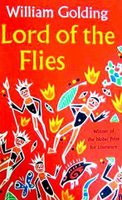Goodnight Mister Tom by Michelle Magorian
Looking for a book which has won dozens of AWARDS; a book which is loved by children and adults nationwide; and a book which, at different points, will make you beam with happiness, choke with tears or boil with anger? Well this book does all of that and more. It tells the touching tale of a poor, bedraggled, abused evacuee who is sent for safety to the countryside during World War Two, only to find his life transformed as a result. This comes highly recommended, and here is an extract from the first chapter:
‘Yes,’ said Tom bluntly, on opening the front door. ‘What do you want?’
A harassed middle-aged woman in a green coat and felt hat stood on his step. He glanced at the armband on her sleeve. She gave him an awkward smile.
‘I’m the Billeting Officer for this area,’ she began.
‘Oh yes, and what’s that got to do wi’me?’
She flushed slightly. ‘Well, Mr, Mr...’
‘Oakley. Thomas Oakley.’
‘Ah, thank you, Mr Oakley.’ She paused and took a deep breath.
‘Mr Oakley, with the declaration of war imminent...’
Tom waved his hand. ‘I knows all that. Get to the point. What d’you want?’
He noticed a small boy at her side.
‘It’s him I’ve come about,’ she said. ‘I’m on my way to your village hall with the others.’
‘What others?’
She stepped to one side. Behind the large iron gate which stood at the end of the graveyard were a small group of children. Many of them were filthy and very poorly clad. Only a handful had a blazer or coat.
They all looked bewildered and exhausted. One tiny dark-haired girl in the front was hanging firmly on to a new teddybear. The woman touched the boy at her side and pushed him forward.
‘There’s no need to tell me,’ said Tom. ‘It’s obligatory and it’s for the war effort.’
‘You are entitled to choose your child, I know,’ began the woman apologetically.
Tom gave a snort.
‘But,’ she continued, ‘his mother wants him to be with someone who’s religious or near a church. She was quite adamant. Said she would only let him be evacuated if he was.’
‘Was what?’ asked Tom impatiently.
‘Near a church.’
Tom took a second look at the child. The boy was thin and sickly-looking, pale with limp, sandy hair and dull grey eyes.
‘His name’s Willie,’ said the woman.
Willie, who had been staring at the ground, looked up. Round his neck, hanging from a piece of string, was a cardboard label. It read ‘William Beech’.
Tom was well into his sixties, a healthy, robust, stockily-built man with a head of thick white hair. Although he was of average height, in Willie’s eyes he was a towering giant with skin like coarse, wrinkled brown paper and a voice like thunder.
He glared at Willie. ‘You’d best come in,’ he said abruptly.
The woman gave a relieved smile.
‘Thank you so much,’ she said, and she backed quickly away and hurried down the tiny path towards the other children.
Willie watched her go.
‘Come on in,’ repeated Tom harshly. ‘I ent got all day.’


